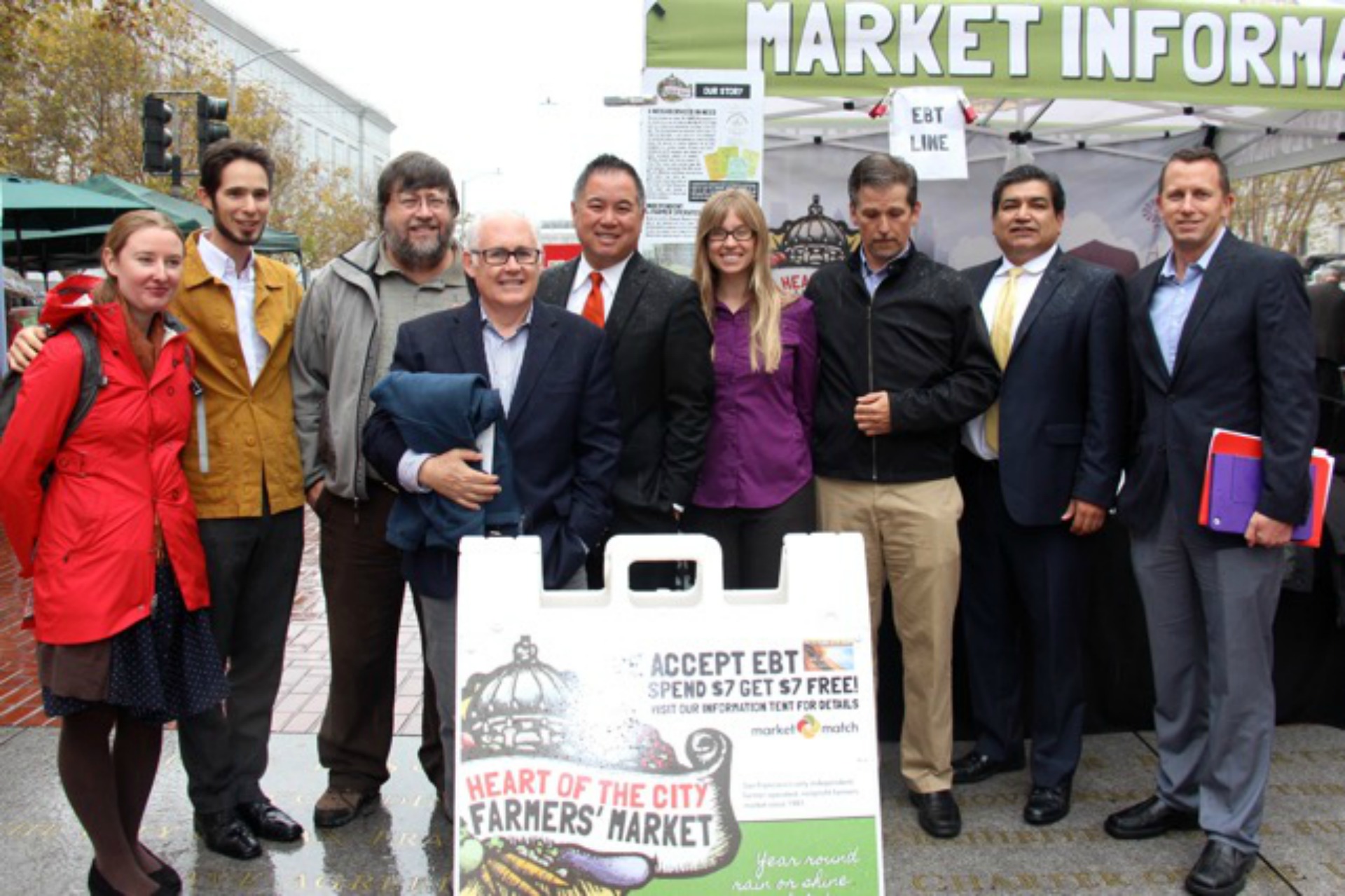
In the News
How Oakland’s Roots of Change is Transforming Food Policy in California
-
Focus Areas
Environmental Health, Healthy Communities -
Issues
Climate Change, Community Development, Rural Health -
Expertise
Public Policy Advocacy -
Programs
Roots of Change
What’s the difference between free range and organic chickens? Should I eat quinoa? And tell me again why organic spinach is twice the cost of conventional? Given the complexity of contemporary food systems and their related issues, it’s not surprising that some consumers latch onto simplistic answers to these confusing series of questions: GMOs = always bad! Small, organic farms = going to save the world! Big ag = the enemy!
The Oakland-based organization Roots of Change avoids this kind of easy thinking through their groundbreaking policy work, educational initiatives, and their engaging social media presence. They post a steady stream of topical articles on their Facebook page — with added commentary — which attracts varied opinions from their fans. These well-intentioned commenters occasionally reduce complicated issues into black-and-white, “good guys vs. bad guys” arguments.
 Roots of Change genuinely wants to change this dynamic. Their social media manager diplomatically steps into these online debates by gently pointing out hidden facets of the convoluted processes that shape our food systems — thus encouraging a more balanced discussion.
Roots of Change genuinely wants to change this dynamic. Their social media manager diplomatically steps into these online debates by gently pointing out hidden facets of the convoluted processes that shape our food systems — thus encouraging a more balanced discussion.
In response to a individual who advocated that Foster Farms be shut down due to concerns over one of its poultry processing plant’s water usage, the manager wrote,“It is a bit more complex.” Then he/she went on to explain that Foster contracts with several local farms.
“If you put [them] out of business, you could hurt just those farmers you’d like to see flourish. A better way would be to grow the market for local, organic and sustainably raised birds and attract producers to that marketplace. But no matter what, it takes water to process chickens, lots of water.”
This willingness to think broadly and to deeply engage with the community has made Roots Of Change a formidable organization. (They’ve also attracted a broad audience on Facebook with over 60,000 followers.) The group describes themselves as a “think and do tank,” and their goal is to change current food systems through policy work.
Since their inception in 2002, they’ve laid the foundation for lasting change through many projects, such as helping San Francisco and Los Angeles create viable, effective food policies. They were instrumental in shaping Market Match, the statewide incentive program that matches nutritional benefits like WIC and CalFresh at farmers markets. And they helped influence Ag Vision, the state’s plan for a healthy agricultural future.
“Our goal is to catalyze the food movement, [and] provide road maps to victories for transforming the food system,” said Michael Dimock, president of Roots of Change.
In the past few years, the group’s main initiative has been the California Food Policy Council. This group of 29 regional food policy councils works together to share ideas, resources, and lobbies on behalf of food and ag-related issues in Sacramento.
The council’s broad goals means that their work can’t be narrowly classified. They encompass all aspects of the food system, from the environmental impacts of raising meat to fast food workers’ fight for fair wages.
“We have a long history of working with all elements, what we call grass tops to grassroots,” Dimock said.
It took a spirited debate in the early days of the council to agree on their six main focus areas: healthy food access; ecological farming systems; small farm viability; farm labor; school food environments; and reasonable food system infrastructure. Council members include advocates from a range of fields, including public health, social justice, local economies, environmentalism and labor.
One of Roots Of Change’s biggest goals, Dimock said, was to “bring more democracy [and] more people to the food system, because there were too few interest groups controlling the evolution of the food system. That approach has proved to be politically powerful. If you can bring a broad cross section of people into a policy debate, it’s clear that, ‘Wow, people from all walks of life support this. We can get bills passed.’”
Originally published by KQED
More Updates
Work With Us
You change the world. We do the rest. Explore fiscal sponsorship at PHI.
Support Us
Together, we can accelerate our response to public health’s most critical issues.
Find Employment
Begin your career at the Public Health Institute.



